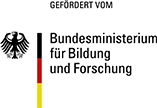Agreement between the pronoun and antecedent is a crucial component of effective writing. Pronouns are words that replace nouns in sentences, while antecedents are the nouns or phrases that the pronouns replace. It is essential to ensure that the pronoun agrees with its antecedent in terms of number and gender.
Number agreement simply means that the pronoun and antecedent should match in singular or plural form. For instance, if the antecedent is a singular noun or pronoun, the pronoun used to replace it should also be singular. Similarly, if the antecedent is plural, the pronoun replacing it should also be in plural form.
For example, consider the following sentence: „Emily went to the store, and they bought some fruits.“ In this sentence, the pronoun „they“ replaces the antecedent „Emily.“ However, the pronoun „they“ is plural, while the antecedent „Emily“ is singular, which makes the sentence grammatically incorrect.
Gender agreement refers to the agreement between the gender of the pronoun and antecedent. A masculine pronoun should replace a masculine antecedent, a feminine pronoun should replace a feminine antecedent, and a neutral pronoun should replace a neutral antecedent.
For example, consider the sentence: „Alex went to the store, and she bought some clothes.“ In this sentence, the pronoun „she“ replaces the antecedent „Alex,“ which is a feminine name. The pronoun „she“ is feminine, which makes the sentence grammatically correct.
The importance of pronoun-antecedent agreement cannot be overstated, as it ensures clarity and precision in communication. Incorrect agreement can lead to confusion and misunderstanding and may even change the meaning of a sentence.
Here are some tips to help you ensure proper pronoun-antecedent agreement in your writing:
1. Identify the antecedent before using a pronoun.
2. Make sure that the pronoun you use agrees with the antecedent in terms of gender and number.
3. Avoid using ambiguous pronouns like „it“ and „they“ unless it is clear what they are referring to.
4. If you are referring to a group of people of mixed genders, use gender-neutral pronouns like „they,“ „them,“ and „their.“
In conclusion, the agreement between the pronoun and antecedent is an essential element of good writing. Ensuring proper agreement will help you convey your ideas clearly and effectively, and avoid confusion and misunderstandings. So take the time to review your writing and ensure that your pronouns and antecedents are in agreement, and your writing will be more effective and engaging.
